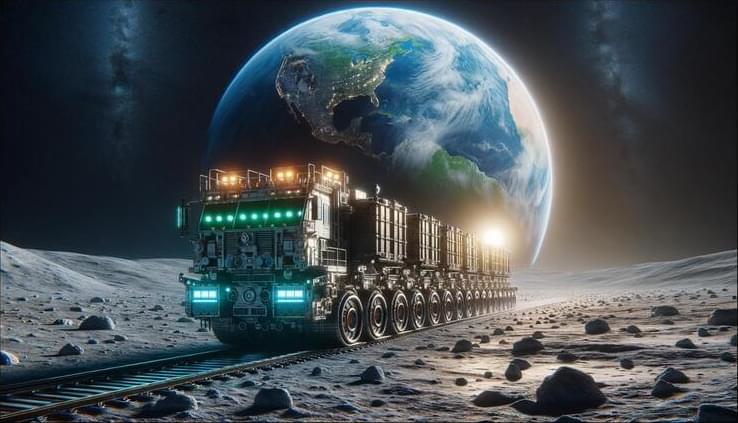In preparation for a permanent human colony on the Moon, DARPA has awarded a contract to Northrop Grumman to develop a lunar railway concept, as part of the 10-year Lunar Architecture (LunA-10) Capability Study.
Running a train on the Moon may seem profoundly silly, but there is some very firm logic behind it. Even as the first astronauts were landing on the Sea of Tranquility in 1969, it was realized that a permanent human presence on Mars would require an infrastructure to maintain it. That includes mines for water ice, nuclear power plants, factories, and railways.
Though many people think the Moon is small, it is, in fact, a very large place with a surface area equivalent to that of Africa. Over such an expanse, even a limited presence would require some sort of a transport system to link various outposts and activities.










It makes sense to have some kind of surface or subsurface lunar transport system, especially if most or all future colonies there are to be interconnected. There’s only so far people can walk in a reasonable amount of time, especially without being exhausted by the end of the trip. Not to mention, the girth of the Moon is over 3000 kilometers, a distance average moon buggies couldn’t drive to (the lunar rovers the astronauts used on the Apollo missions were only designed to go a few kilometres). Perhaps some parts of the circum-lunar railroad could run through the lava tubes that exist on the Moon (the same lavatubes that could host entire towns) as somewhat of a lunar subway system. When you come to think about it, trains on the Moon make tons of sense, as when multiple bases and towns are established all over the Moon, people and cargo are bound to be regularly travelling between them.
People tend to underestimate how large the other planets and major moons of our solar system actually are. For example, Mars is as large as all Earth’s continents combined!